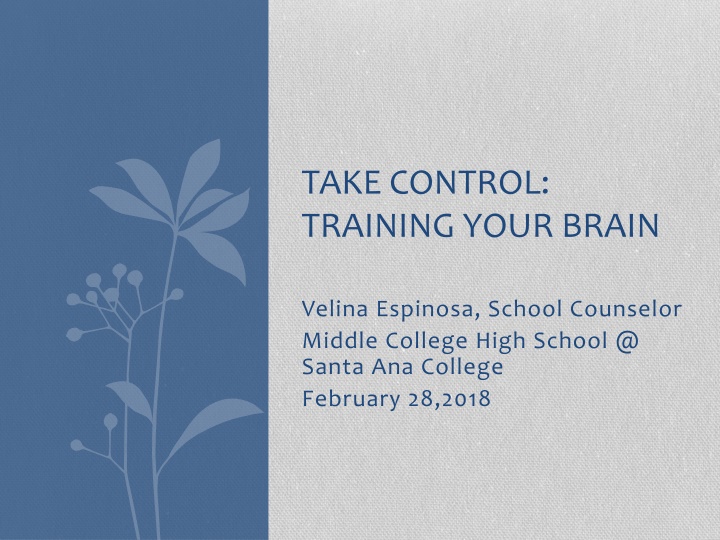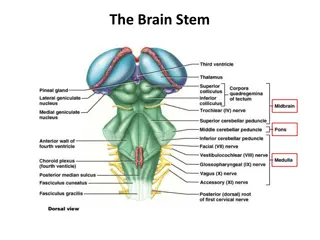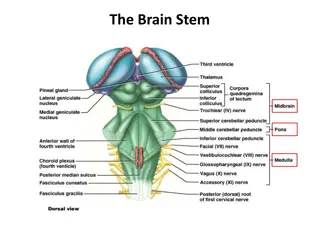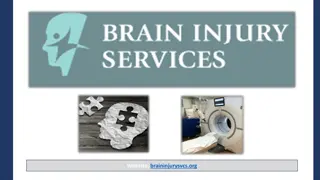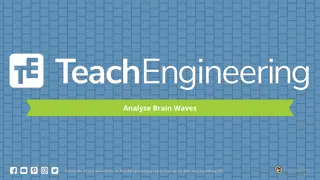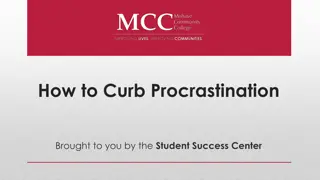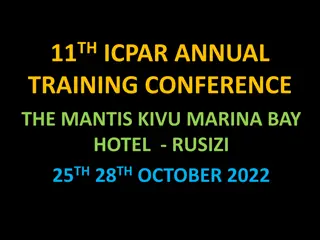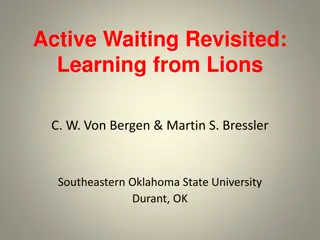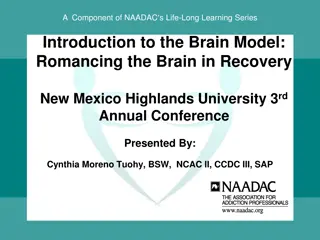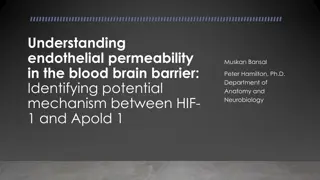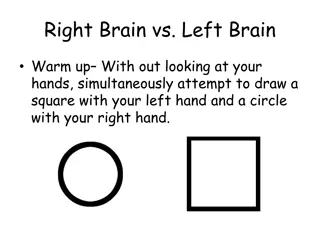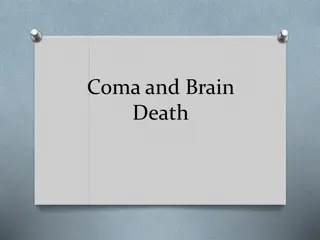Take Control: Training Your Brain - Impact on Learning, Procrastination, Pomodoro Technique
Brain plasticity, essential for developing new habits and recovering from brain injury, influences learning. Repetition is key to expertise, while procrastination impacts productivity. The Pomodoro Technique aids focus and productivity through timed intervals. Embrace these insights to enhance cognitive function and optimize learning potential.
Download Presentation

Please find below an Image/Link to download the presentation.
The content on the website is provided AS IS for your information and personal use only. It may not be sold, licensed, or shared on other websites without obtaining consent from the author.If you encounter any issues during the download, it is possible that the publisher has removed the file from their server.
You are allowed to download the files provided on this website for personal or commercial use, subject to the condition that they are used lawfully. All files are the property of their respective owners.
The content on the website is provided AS IS for your information and personal use only. It may not be sold, licensed, or shared on other websites without obtaining consent from the author.
E N D
Presentation Transcript
TAKE CONTROL: TRAINING YOUR BRAIN Velina Espinosa, School Counselor Middle College High School @ Santa Ana College February 28,2018
Gestalt/Overview Brain Plasticity The Impact on Learning Training Your Dragon Procrastination The Pomodoro Technique 2 Ways of Thinking
Basic Brain Functions Neuroplasticity or brain plasticity the ability of the brain to change (modify its connections or re-wire itself.) This allows the brain to develop from infancy to adulthood, recover from brain injury, learn new concepts, and develop new habits Dr. Lara Boyd, Ted Talk on Brain research https://www.youtube.com/watch?v=ELpfYCZa87g www.brainhq.com
The Impact on Learning Repetition is required to become an expert Grooves in the brain a road map Makes retrieval easier examples: a library junk drawer vs. organized drawer messy backpack vs. organized backpack Can we think of some examples of experts? What do you consider yourself good at? How did you get to that level?
Training Your Dragon Learning is like preparing for a marathon, not a sprint! It takes preparation/repetition over time Long term memory vs. short term memory Do you really have test anxiety?
Procrastination Deferment, Postponement, Stalling, Delay, Putting Off Avoiding an unpleasant, uncomfortable task Pain sensors in the brain The Dread of doing something is worse than the task Turn to more pleasant activities A habit of procrastination?
The Pomodoro Technique Francesco Cirillo developed technique in the early 90 s "Pomodoro" after the tomato-shaped timer used to time his work as a university student The methodology is simple: When faced with any large task or series of tasks, break the work down into short, timed intervals (called "Pomodoros") that are spaced out by short breaks. This trains your brain to focus for short periods. With time it can even help improve your attention span and concentration You also get to take regular breaks that bolster your motivation and keep you creative. https://www.youtube.com/watch?v=H0k0TQfZGSc
2 Ways of Thinking/Networking : We Need Both to Learn Barbara Oakley, Ph.D.Engineering https://www.sciencefriday.com/articles/how-pinball-helps-explain- ways-we-think-and-learn/ https://www.coursera.org/instructor/barboakley Focused Thinking - highly attentive states; essential for studying math and science. It involves a direct approach to solving problems using rational, sequential, analytical approaches. The focused mode is associated with the concentrating abilities of the brain s prefrontal cortex, located right behind your forehead. Diffuse Thinking - more relaxed default mode states - is also essential for learning math and science. It is what allows us to suddenly gain a new insight on a problem we ve been struggling with, and is associated with big picture perspectives. Diffuse-mode thinking is what happens when you relax your attention and just let your mind wander.
Recap Retrain your brain to create better habits Get over initial dread of a task Break work into manageable chunks, not overwhelming Most learning (especially math and science) require building on concepts, repetition over time, NOT cramming! We need to use focused and diffuse thinking to learn Tips: Recall read page, look away, and verbalize it Testing most powerful technique - test yourself, e.g. flash cards AVID strategies
Be Your Best Self Start new habits Be accountable with a buddy Pay attention and enjoy new actions
